Quick Summary
- Seminars are designed to bring our newest students face-to-face with instructors, but any undergraduate can take a class.
- Seminars are fun: “Experimental Magic,” “Rocket Science,” “Zombies,” “Psychology of Drumming” and “Think Like a Cosmologist” are among about 300 topics.
- During their college career, undergraduates can take more than one seminar but only one per quarter.
First-Year Seminars tap into the shared curiosity of UC Davis students and their instructors to create communities of people excited to learn. With approximately 300 seminars offered each year, there’s plenty to discover.
These classes are designed to bring our newest students face-to-face with instructors and fellow students in small classes where conversation is key. At one to two units each and limited to a maximum of 19 students, they are also intended to fit into your busy schedule.
You don’t have to be a freshman or first-year transfer student to take first-year seminars. Although certain courses are only offered to freshmen, for most classes enrollment is only limited during Pass I and Pass II, but anyone can register during open registration. You can also take more than one seminar while you’re here at UC Davis — but only one per quarter.
Bring your imagination and creativity to these classes:
1. & 2. ‘Zombies’ and ‘Druids’
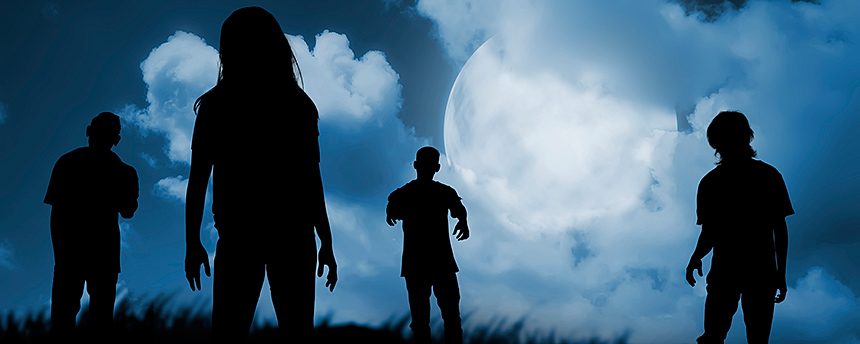
Have you been bit by the zombies craze? The re-animated dead who feed on human flesh have also gnawed their way into the brains of anthropologists, scientists, philosophers and cultural critics. Join University Writing Program instructor Sean McDonnell to explore in a spring-quarter seminar how zombies help us ask questions about consciousness, free will, racism and immigration.
And then there is the spring-quarter seminar "Druids: Religion, Wisdom and Violence” by religious studies faculty member Wendy Terry. Long before zombies, the druids were real-life practitioners of human sacrifice and extreme violence. Learn how they were also the keepers of the ancient Celtic wisdom and religion.
3. ‘Think Like a Cosmologist’
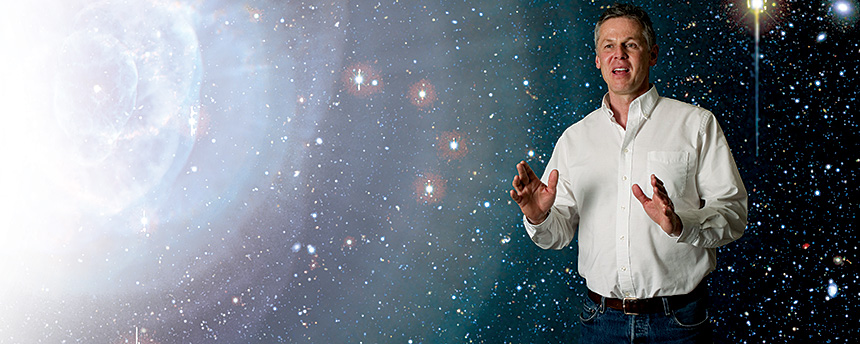
What is time? What is space? What is out there in the universe and how did it come to be? These are questions that have excited human curiosity since before history was recorded, and they are an active area of scientific research today. Whether you aced physics or prefer poetry, this fall-quarter introduction by physics professor Andreas Albrecht will inspire you.
4. ‘Art Meets Technology at the Mondavi Center’
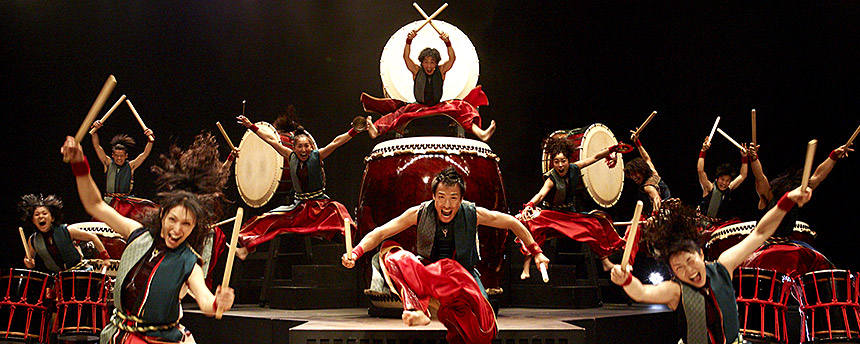
Pull back the curtain and learn about the technology that makes great performances tick from music lover and electrical engineering professor Charles Hunt. He teaches this class winter quarter, revealing the stage and lighting technology hidden in the amazing Mondavi Center for the Performing Arts.
5. ‘Eating in California’
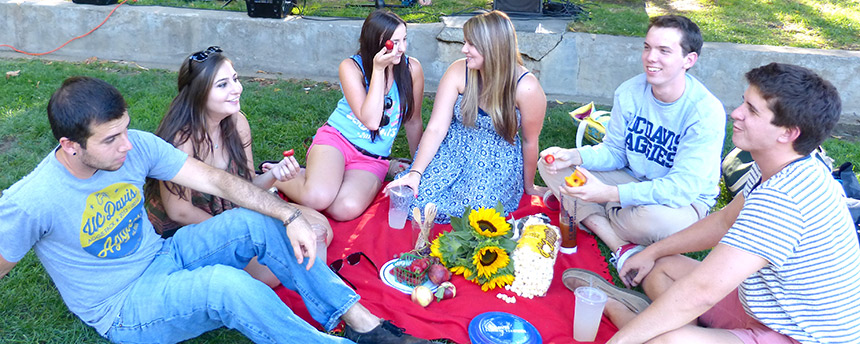
You already know that California is a top agricultural producer for the world. Our state’s diverse population brings influences from all over the world. And, we’re home to movements in health consciousness, while our restaurateurs and chefs love to experiment. In spring quarter, make the most of living in the nation’s farm-to-fork capital as you explore the California food market, discover seasonal and local diversity, and contribute to a Facebook cookbook with Irina Delusina of the earth and planetary sciences department.
6. ‘There Is Life After Cheddar’
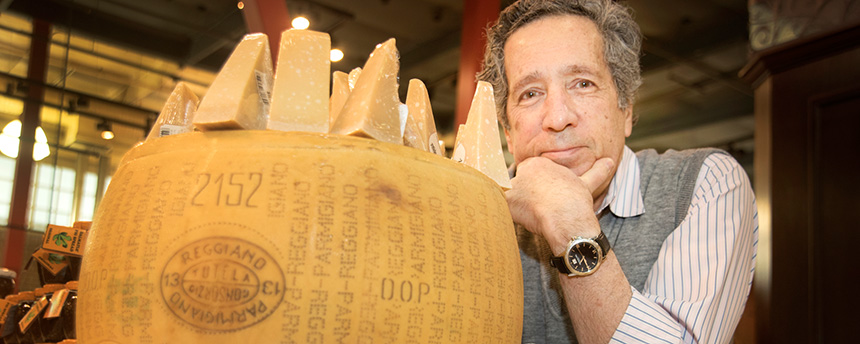
Sure, you miss Mom’s grilled cheese sandwiches, but it’s time to learn that “There Is Life After Cheddar.” Delve into the other 1,999 varieties during this spring quarter class, and impress your friends with your knowledge of artisanal cheesemaking with Moshe Rosenberg, professor of food science and technology. (Sorry, cheese lovers, this course is limited to freshmen.)
7. ‘Experimental Magic’
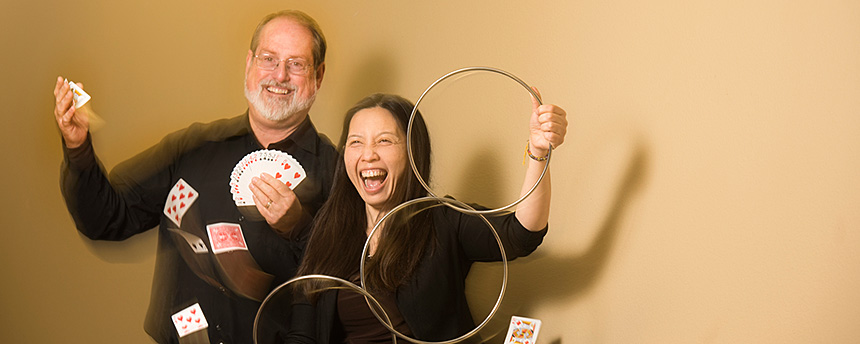
Eve Isham, an instructor in the Department of Psychology, and magician Rick Hill show you in the spring-quarter “Experimental Magic” class how the “mysteries” of performance magic are gateways to the mysteries of the mind. Learn the basics of neural and perceptual mechanisms while you’re amazed by sleight-of-hand. No smoke and mirrors needed.
8. ‘What Makes Airplanes Fly?’
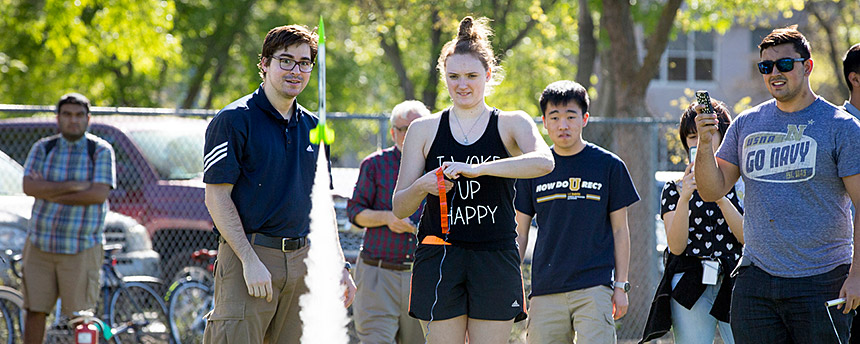
Fasten your seatbelts for a whirlwind spring-quarter course “What Makes Airplanes Fly?” Get introduced to the mechanics of lift, drag and those little flaps that pop out of airplane wings when you land in this spring course with UC Davis teaching prize winner Mohamed Hafez, a professor of mechanical and aerospace engineering. For those with extraplanetary aspirations, Professor Hafez also teaches introductory “Rocket Science” during winter quarter.
9. ‘The Art Foundry’
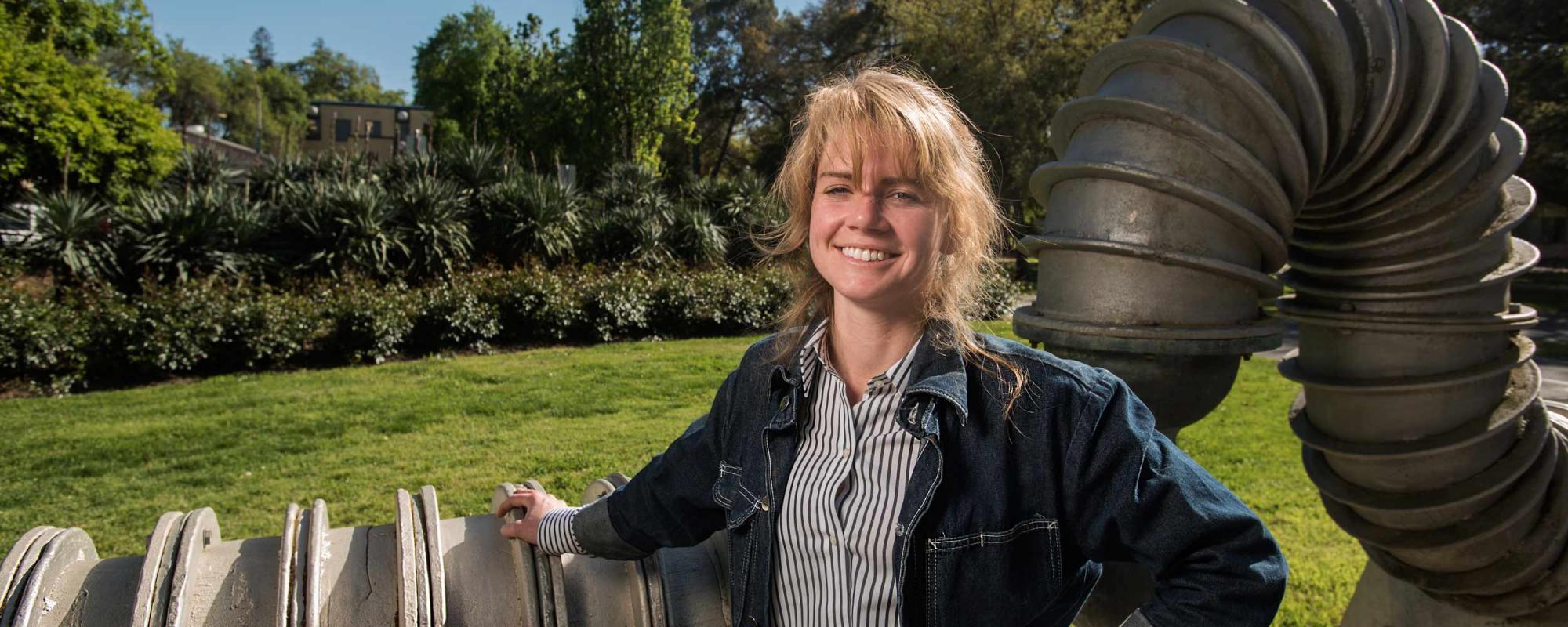
We may live in the silicon era, but melted metal is an enormous part of our everyday lives, from bridge building to jewelry making. Artist and lecturer May Wilson leads a spring-quarter exploration of one of the most important technologies in history. The instructor brings in the context of industry and art through readings, discussions and visits to commercial and artists’ foundries.
10. ‘World Music as a Means to Embrace Diversity and Reach Self-Discovery’
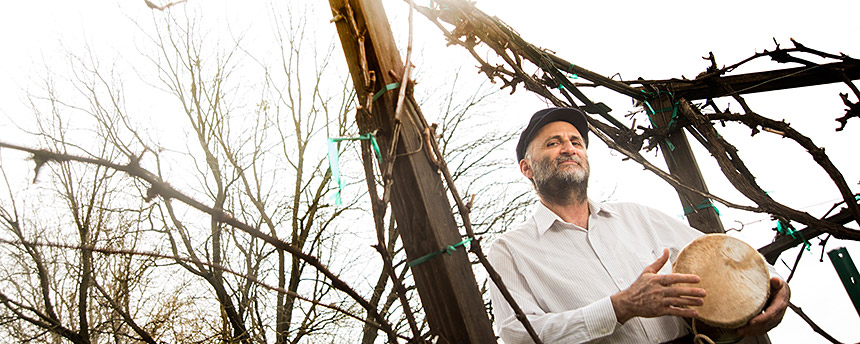
Confucius, Plato and Pythagoras believed that daily exposure to music enhances one’s health. Practice group singing, dancing and walking meditation with chemistry lecturer Andreas Toupadakis in this spring-quarter world music class, which is inspired by the belief that happy students are more productive and make wiser decisions.
11. ‘Psychology of Drumming’
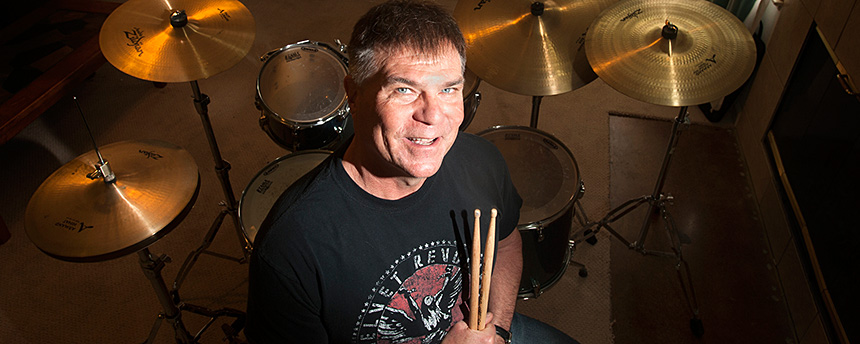
How do drummers find their groove? Personality theory, drumming style and rock ’n’ roll come together as you learn to listen closely to the beats and “fills” in your favorite music. You'll discover what they can tell you about the musician behind them in this fall-quarter class taught by University Writing Program instructor and blues-rock drummer Brad Henderson.
12. ‘Why Do People Relinquish Their Dogs?’

Statistics professor Christiana Drake brings her expertise during winter quarter to investigate the challenging questions of dog abandonment. You’ll learn what characteristics are most evident in abandoned dogs and how overpopulation factors into the problem. The class helps you develop critical thinking and quantitative skills and includes visits to animal shelter or dog rescue events. In spring quarter, Professor Drake teaches “How to Conduct a Survey.”
13. ‘The Cultural Life of the City of Davis’
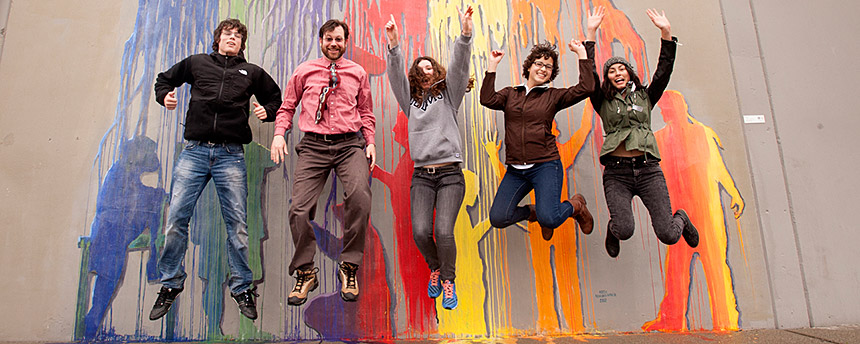
A giant dog made of recycled records, trompe-l’oeil electrical boxes and murals on almost every block convert downtown Davis from a small town into a quirky outdoor art gallery. This spring, discover Davis’ thriving cultural life with “Dr.” Andy Jones, instructor in the University Writing Program instructor, radio host and pub quiz master. Perfect for students new to UC Davis.
Media Resources
Sharon Campbell Knox, Undergraduate Education, 530-752-4917, scknox@ucdavis.edu